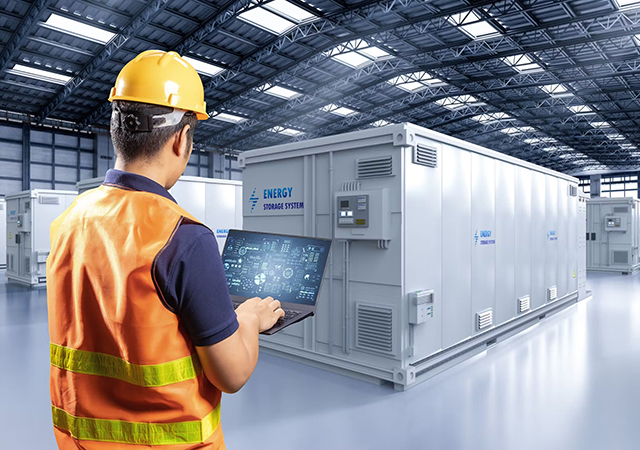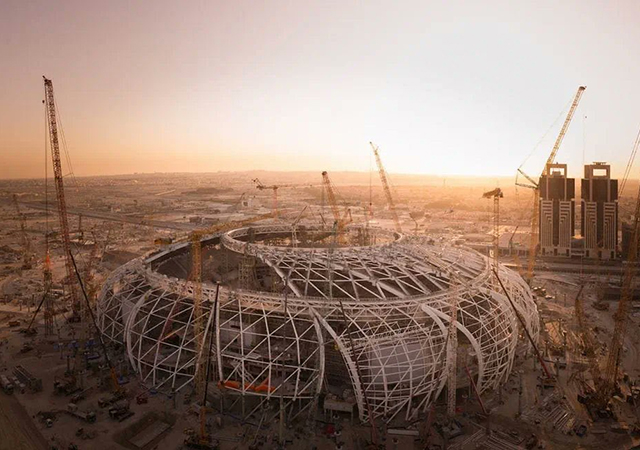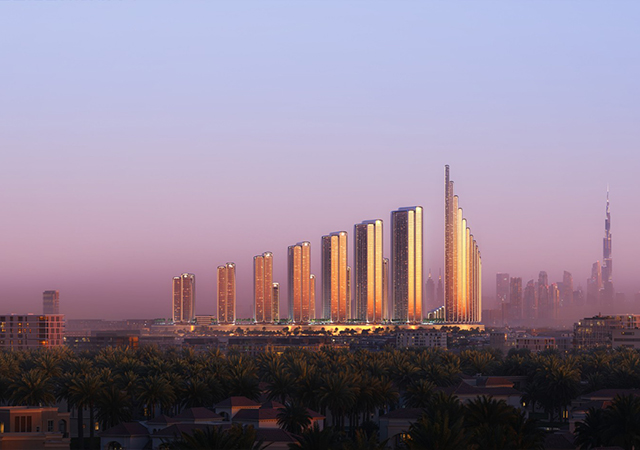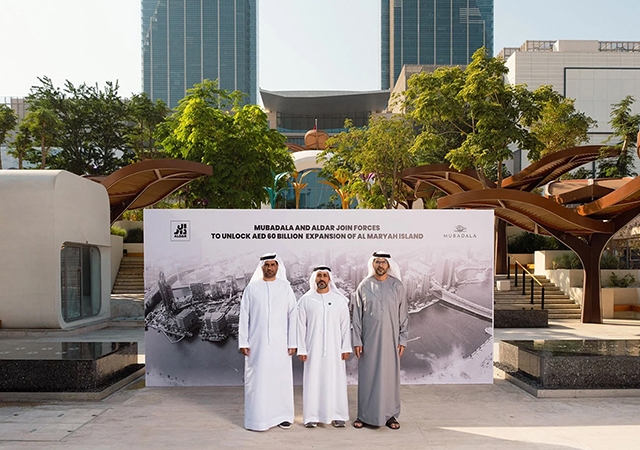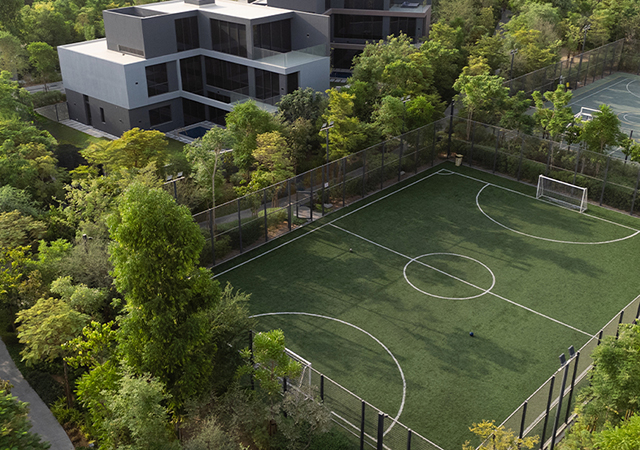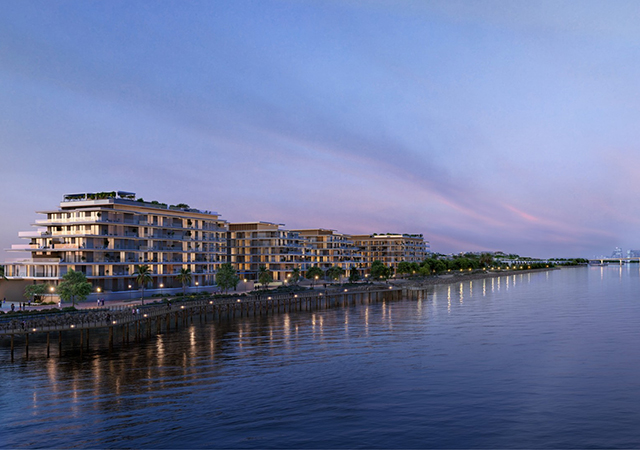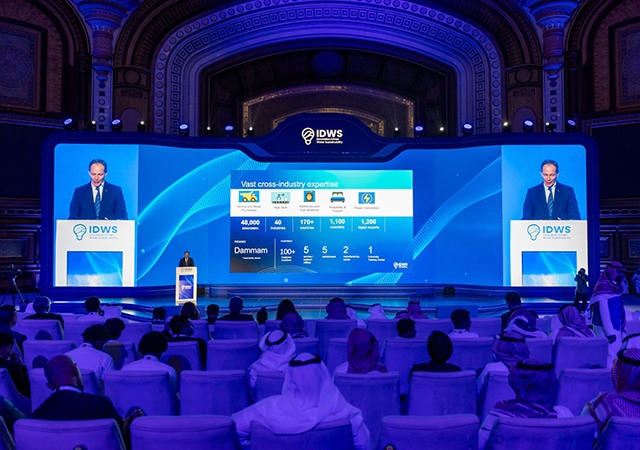
 A number of road projects are under way to ease traffic congestion.
A number of road projects are under way to ease traffic congestion.
THE need to boost the infrastructure to meet the demands placed by a rapidly growing population – supported by the extra revenues earned through strong oil prices – is ensuring that there is ample work for contractors in Abu Dhabi.
Strong oil prices have continued to boost the emirate’s GDP, which posted an 11.5 per cent growth to Dh166.54 billion ($45.34 billion) last year. The non-oil-sector also performed well, accounting for Dh88.82 billion ($24.18 million), a little more than half of the total GDP last year.
Abu Dhabi has taken a pioneering role in the region in privatising its electricity and water sector which has seen the emirate launch a total of five independent water and power projects (IWPPs).
Having ensured adequate power supplies, the emirate has now set up a new government authority to spearhead industrial growth. A proposed car-manufacturing zone – the first of its kind in the Gulf – is among the major schemes that this new authority is pressing ahead with.
Apart from the expansion of power generation capacity, construction of roads and bridges and housing projects and industrial expansions remain the main focus of growth. In line with the Vision 2020 programme drawn up with the cooperation of the United Nations Development Programme (UNDP), new residential areas are being developed to meet the demand of the growing population and hundreds of plots are being distributed to nationals for housing in Khalifa City A and B and the new Madinat Zayed on the Al Ain Road.
The government has also chalked out a Dh30 billion ($8 billion) construction plan to build about 40 residential and commercial towers in the coming few years, according to local news reports. The project, which is still in the early feasibility study stage, could give a tremendous boost to the construction sector if it goes ahead.
Other plans mooted include opening up the real estate sector to investments by foreigners.
A focus on tourism will see the opening by the year-end of one of the largest conference and resort facilities in the Middle East, as well as a number of major hotel projects in the emirate. While its neighbour Dubai has catapulted itself to the league of the world’s top tourist destinations, Abu Dhabi is looking at launching a few of its own ventures – such as the newly-launched Capital Plaza and the Fairmont – which could draw a significant number of tourists.
The emirate is reported to be reviewing plans for its proposed showpiece international airport terminal to take into account the growth plans of Abu Dhabi’s own airline Etihad Airways, which in turn could see a rise in visitors.
Airport
The Abu Dhabi International Airport is undergoing major expansion as part of a massive Dh1.5 billion facelift project, according to the Abu Dhabi Civil Department report.
However, plans to build a new terminal are currently being revised in order to incorporate the proposed fleet expansion of Abu Dhabi-based passenger carrier Etihad Airways, according to news reports. Original plans, drawn up by French consultant Aeroports de Paris, had called for the construction of a two-storey terminal building with capacity for eight million passengers a year, 11 aircraft bays, six remote bays and a 7,000 sq m shopping area.
With the completion of the current expansion work by 2006, the airport will have increased its capacity twice as much. The new expansions include the addition of 20 new outlets to the duty-free area. Arrival area, passport control counters, baggage areas and cafeterias are among the many facilities that are receiving massive facelifts.
Plans to build a second runway at the airport are expected to go ahead shortly. A contractor is expected to be announced by the year-end for the project, which entails the construction of a 4,100-m-long runway, parallel and link taxiways, navigational aids and associated works. The UK’s Halcrow is the consultant.
Meanwhile, the Abu Dhabi Cargo Village, which opened in 2003, has embarked on the second stage of its three-phase development plan. The Dh18 million second phase will double the completed first phase area of 14,095 sq m. The new facility specialises in cargo storage and re-export operations and it is custom-built for easy access to bonded warehouses and offices to help cargo airlines, courier companies, re-exporters and clearing agencies.
Shaikh Zayed Mosque
Construction work is in full swing on the Sheikh Zayed Grand Mosque, believed to be the largest in the Gulf. The estimated Dh1.5 billion ($408.7 million) mosque, built in a unique oriental architectural style at the entrance to Abu Dhabi city, will have a capacity of 40,000 people.
The structure, which covers an area of more than 22,000 sq m, is scheduled for November 2006.
Italy-based Impregilo completed the main structural works worth $120 million about a year ago, under the design direction of Halcrow Group. For the second phase finishing works, a $340 million contract was awarded this year to the UAE-based joint venture of Six Construct, an arm of Brussels-based Besix, and Arabian Construction Company. Halcrow continues to coordinate design, construction and interior work.
Power & water
Three international developers are in the race for the estimated $950 million Taweelah B project which is Abu Dhabi’s fifth IWPP. These include the UK’s International Power with Belgium’s Tractabel, France’s Total with Japan’s Tokyo Electric Power Company (Tepco) and Japan’s Marubeni with BPU Ventures of the US.
The project, believed to be the biggest IWPP ever undertaken by Abu Dhabi Water and Electricity Authority (Adwea), entails doubling the plant’s existing power generation capacity of 1,000 MW. It also involves adding 65 million gallons per day (gpd) water desalination capacity to the current 90 million gpd.
In keeping with the model employed on Abu Dhabi’s four previous IWPPs, the foreign developer will take a 40 per cent stake in a new project company, which will purchase, extend, own, operate and maintain the Taweelah station. The remaining 60 per cent will be held by Adwea.
The Taweelah B plant is the only fully government-owned cogeneration plant within the Taweelah complex. The other two, the Taweelah A2 and Taweelah A1, are now IWPPs being developed by international companies.
Adwea has succeeded in attracting huge investments to the electricity and water sector, totalling about Dh22 billion, with Dh3 billion going to Taweelah A2, Taweelah A1 got Dh5 billion, Shuweihat secured Dh 6 billion, while the Umm Al Nar project received Dh8 billion. By adopting the privatisation policy, the government has been spared the trouble of having to shoulder the responsibility of funding these projects.
Meanwhile, work is also under way on the Emirates National Grid (ENG) project. A series of contracts were awarded last March, among which was a Dh41.9 million deal (Lot I-2) awarded to Japan’s Sumitomo Corporation for the extension of the existing 400-kV substation at Taweelah, as part of the scheme.
Oil & gas
The $3.5 billion Dolphin Project made further progress with the award of an engineering, procurement and construction (EPC) contract worth more than $115 million to Italy’s oilfield services company Saipem, a wholly-owned subsidiary of oil and gas giant ENI. The contract, awarded by the UAE’s Dolphin Energy, calls for the installation of two 36-inch diameter concrete-coated sealines offshore northeast of Qatar.
Dolphin Energy Limited has signed a $1.36 billion loan agreement with a consortium of 16 local, regional, and international banks to fund a portion of the construction and operating costs for the Dolphin Project.
The Dolphin Gas Project is a strategic regional energy initiative, which is expected to come on stream in 2006. It involves the development of substantial natural gas reserves from Qatar’s offshore North Field, their processing onshore at Qatar’s Ras Laffan – and transportation by export pipeline of up to 3.2 billion cu feet a day capacity of refined natural gas to the UAE.
The government of Abu Dhabi owns 51 per cent of Dolphin Energy, while France’s oil and gas company Total and US’ Occidental Petroleum hold a 24.5 per cent stake each.
Abu Dhabi’s largest gas initiative, the estimated $2 billion plus Onshore Gas Development phase III and Asab Gas Development (AGD) phase II, is set to move ahead with technical bids due this month on the latter project.
The OGD-3 essentially aims to produce higher volumes of natural gas liquids (NGL) and condensate and reinjection of gas into oil fields. The project will involve the construction of a gas plant at Habshan to process 1.3 billion cu ft daily of well-stream fluids into 11,000 tonnes per day (tpd) of NGL, 3,400 tpd of ethane and 125,000 bpd of condensate.
The AGD-II project is an extension of the existing Asab Development Phase I, and will include facilities for processing 780 million standard cu ft per day of gas to produce natural gas liquids (NGL) and transfer onward to Gasco’s Ruwais fractionation plant. The award is expected during December 2004.
The AGD-II involves setting up of two new gas treatment plants plus two NGL recovery units to process 750 million cu ft of gas daily into 4,500 tpd of NGL and 1,700 tpd of ethane. Project completion is planned for mid-2007.
Given the size and scale of the project, three firms – the Adco, Gasco and the Abu Dhabi Oil Refining Company’s (Takreer) will handle different packages between them.
Among other developments in this sector, the front end engineering and design (FEED) for Takreer inter-refinery pipeline project has been completed and the EPC contract for the project is expected to be awarded in the first quarter of 2005.
The project, which is expected to be handed over to Takreer in the third quarter of 2007, involves linking Abu Dhabi Refinery and Ruwais Refinery, which are located 22 km and 250 km, respectively, from Abu Dhabi. The refineries produce transportation fuels to satisfy the needs for the local markets in the UAE and certain export markets for Takreer.
The scheme includes the supply and installation of: a 16-inch-diameter, 203-km-long multi-products pipeline from Ruwais to Mussafah; a 10-inch-diameter, 230-km-long gas-oil pipeline and a 12-inch-diameter, 230-km-long naphtha and jet fuel pipeline from Umm Al Nar to Ruwais; a 10-inch-diameter jet fuel pipeline from Mussafah to receiver facilities at Abu Dhabi International Airport; and a 12-inch-diameter multi-products pipeline to tie in at Maqta with the existing Umm Al Nar Al Ain pipeline.
Takreer is also revamping its 46,000-barrel-a-day hydrocracker unit at the Ruwais refinery.
Hotels
Work on the landmark Emirates Palace (previously known as the Bani Yas Palace), which has been an important source of work in the construction sector, is drawing to a close. The stunning hotel and conference facility is scheduled to open by the end of this year (see separate article).
Among the major hotel projects planned for Abu Dhabi is the Fairmont Abu Dhabi Resort & Villas complex, which is estimated to cost Dh350 million. The UAE-based company Dewan Architects & Engineers has completed the design for the project, which will be the first property managed by the Toronto-based luxury hotel group Fairmont Hotels & Resorts in Abu Dhabi.
Modelled on a traditional Arabian palace, the resort will cover an area of 16,000 sq m and will be built along a network of canals and will overlook the Abu Dhabi Corniche. It will comprise 265 rooms and suites, including 57 rooms for the chain’s hotel within a hotel service Fairmont Gold.
The complex, expected to open in late 2006, will also have a wedding hall for 1,000 guests, a conference hall, dining and entertainment facilities. It will also feature the Fairmont Restaurant Promenade comprising eight other restaurants and four cafes.
Extensive dining options will include seven restaurants and bars, and 12 restaurants and cafés in the adjacent Fairmont Restaurant Promenade, which will cater to a wide variety of international tastes.
There are also plans to build 50, one-, two- and three-bedroom villas as part of the resort.
The National Corporation for Tourism & Hotels (NCT&H) in Abu Dhabi has unveiled plans to expand its resort portfolio with two new hotels set to open by the end of this year. These include a flagship beach resort near the Sir Bani Yas wildlife island reserve and a deluxe boutique resort at the Al Raha corniche.
The five-star Danat Resort Jebel Dhanna is set for a soft opening in late summer, and will feature 109 rooms including six private chalets. Located in the Ruwais area, 240 km west of Abu Dhabi city, the hotel will showcase a range of facilities to target the leisure and incentive markets.
These include an 800-m private beach, nine-hole par-36 sand golf course plus a golf driving range, outdoor garden area with capacity for up to 1,000 guests, beach and watersports, two pools, floodlit tennis, fitness centre and massage rooms, plus Klub Kid.
An autumn opening is also pencilled in for the Al Raha Beach Hotel, Abu Dhabi’s first luxury boutique resort with 86 rooms and 13 suites, plus 24 chalets.
Located close to the airport and golf courses on the Al Raha corniche and adjacent to a newly developed shopping mall offering international retail shops, restaurants and other family entertainment facilities – the hotel will feature a private beach and sea-facing accommodation as well as a luxurious spa.
Work on the 80,000 sq m shopping centre and 78,000 sq m hotel also entailed reconfiguration of the marine area and external beach areas including a themed restaurant. Al Habtoor Engineering is the main contractor on the Dh230 million project, and is currently carrying out snagging work on the development.
The Al Ain Economic Development and Tourism Authority has embarked upon a multi-million-dirham resort and golf club project in Mubazzarah as a part of a masterplan designed to make Al Ain an international tourist centre. The project includes a spring resort, mineral spring pools, a large lake, clubhouse and golf course, visitors’ centres, planetarium, cableway and conference centre.
Construction work is going on round-the-clock on the different facilities, including landscaping and greening of the area. The golf club will have an 18-hole course and a nine-hole short course along with a media centre surrounded by a lush green belt.
Commercial/residential buildings
At least 20 new high-rises are to be built on Abu Dhabi island by the Khalifa Committee. A project manager for the programme is expected to be appointed shortly. Reports also indicate that the government intends to build between 36 to 40 residential and commercial towers involving an investment of round Dh30 billion in the coming few years.
Plans also include infrastructure projects and the building of industrial cities in Al Raha area.
A number of distinctive headquarters projects, including the Abu Dhabi Investment Authority (Adia) Tower and the Abu Dhabi National Oil Company (Adnoc) towers, are set to open next year.
Work on the Adia Tower continues with internal finishing works currently under way on site. The twin-tower project is targeted for handover by September 2005, according to a spokesman for the contractor Arabtec-Samsung Engineering and Construction.
The project, which provides a total floor area of 113,731 sq m, includes two slim-profiled high-rises – one 38-storey high and the other 33 storeys with one basement level. Standing adjacent to the towers is a seven-storey car-park. High-tech curtain-walling system from Schmidlin is being installed and around 70 per cent of the façade has been covered.
Work on the Adnoc Group Companies headquarters is now set for completion next January, following certain variations to the contract. Work on the project has entailed demolition of an existing car-park structure and the construction of new six-storey car-park and twin 29-storey office towers in concrete and steel. The Dh274 million project is being carried out by a joint venture of Al Habtoor Engineering and Murray and Roberts Middle East.
Bids have been invited for the contract to build the estimated $200 million first phase of the mixed-use development known as Capital Plaza . The development will include five 33 to 45-storey towers, which will house a 250-room luxury hotel, 220 luxury apartments, a private beach and other retail and recreational facilities. Piling work is already under way on the project.
Four major banks have signed a Dh259 million ($70.5 million) loan deal to finance the first phase. The Real Estate Investment and Services Company’s (Reisco) project, taking shape on Abu Dhabi’s corniche will also include a 25,000 sq m office building and underground parking for some 1,200 cars. Construction of the five towers is to start this year and be completed in 42 months.
Among the other major projects is a 13-storey building which is expected to house the headquarters for the Environmental Development & Wildlife Research Agency (EDRA), the UAE Offsets Group and the local Mubadalah Development Company. The estimated Dh150 million building will provide a built-up area of 60,000 sq m.
Also planned are two shopping complexes: the Dh220 million Al Wahda shopping centre, to be built by the Al Fahim Group and the Dh200 million Khalidiyah Mall, the largest from the Emke Group.
The nine-storey Al Wahda complex will come up close to Abu Dhabi’s central bus station. The Khalidiyah Mall will spread across 80,000 sq m over two floors and open parking space for some 2,000 cars. It is expected to be ready by the end of 2005.
Industry
The newly-established Higher Corporation for the Specialised Economic Zones (HCSEZ) is spearheading industrial growth in Abu Dhabi and has launched plans for two special zones: a car manufacturing industrial zone and an oil service zone, which is currently under construction.
Volkswagen of Germany is expected to be an anchor investor in the car-manufacturing zone, while other German and Japanese car manufacturers have also shown interest in the zone.
According to Sheikh Hamed bin Zayed Al Nahyan, chairman of the Department of Economy, the two new zones are currently in their initial stages and would come under the HCSEZ along with the Abu Dhabi Industrial City, the Al Ain Industrial City and the Ruwais (Baynounah) Industrial City – which have been transferred from management under the now defunct General Industries Corporation.
Among other developments, construction work is expected to begin shortly on a Dh880 million pharmaceutical plant at Abu Dhabi Industrial City. The state-of-the-art plant for Abu Dhabi International Pharmaceuticals (Abu Dhabi Pharma) is expected to be completed in two years.
The project is being developed by the Emirates Medical Group, Abu Dhabi and The Developers in collaboration with Italy’s Novasorel (technology and know-how provider) and Ima (equipment supplier and buildings designer).
Roads
Abu Dhabi Municipality has updated the transportation element of its 20-year plan to include widening of existing roads, building of new bypasses, bridges, flyovers, pedestrian underpasses, tunnels and expansion of the public transportation system.
One of the main features of these plans is the construction of four new bridges. These include an 8 km four-lane bridge to connect Abu Dhabi with other emirates. The Sheikh Zayed bridge, as it will be known, is targeted for completion in 2007.
The Abu Dhabi Municipality and Town Planning Department has completed a greater part of the infrastructure projects for the new Abu Dhabi Corniche Road project, which is scheduled to be completed next year at a total cost of Dh750 million.
More than 70,000 sq m have been filled with sand to pave the way for the construction of various projects, including roads parking lots, which can accommodate 3,500 cars at vantage points on the road and recreation grounds, as well as other installations and facilities.
Pavements at various points of the new corniche road, between the Al Khaleej Street and the Airport road have been completed, while a bridge which will span on a lake near the Sheraton Hotel and another one near the Mina Zayed (Port Zayed), are currently under construction.
Work is also under way on a third tunnel and a number of subways along the six-km new corniche road, from the Al Khaleej Street to Mina Zayed.
Upon completion of the four-lane carriageway road project, traffic will ease by more than 30 per cent at the Al Khaleej-Al Salam portion of the road, while the bridge spanning over the Sheraton Hotel artificial lake will also contribute immensely in easing traffic on the new Corniche Road. The infrastructure part of the project is nearing completion, while a number of works falling within the Phase I projects are also on course.
The new Abu Dhabi Corniche project, which took off in December 2001, comprises various projects, including 500 sq m of planted areas with 2,500 fully grown date palm trees and more than 6,000 beautification trees and shrubs.
Work is under way on the last phase of the Abu Dhabi Third Crossing project which entails the construction of an 850-m bridge comprising four lanes which will run almost parallel to the existing Maqta Bridge.








.jpg)

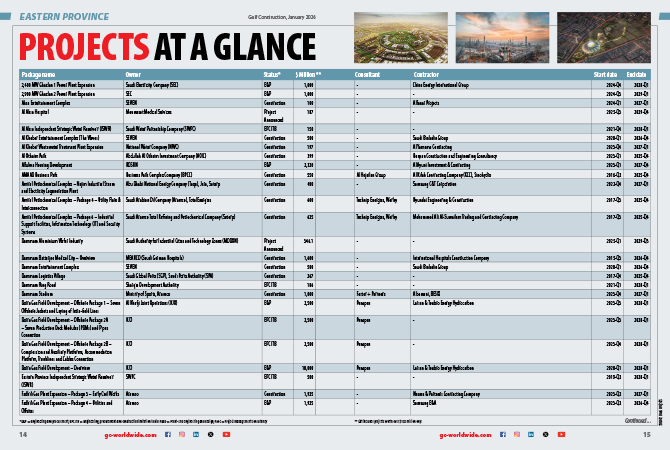


.jpg)





















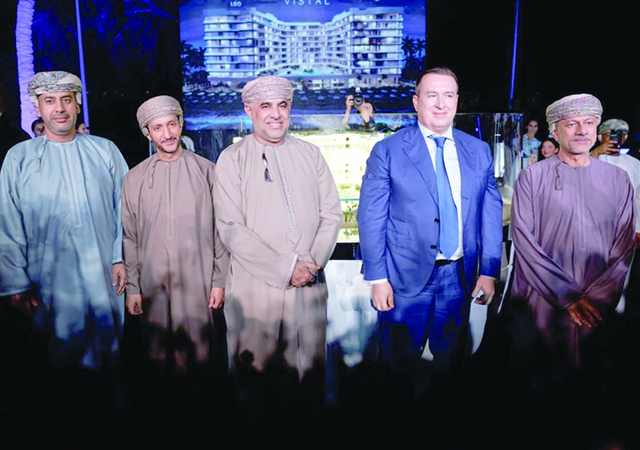






.jpg)







